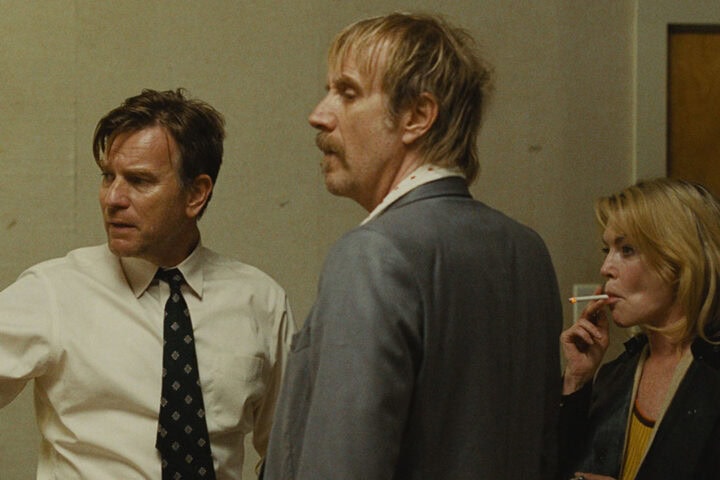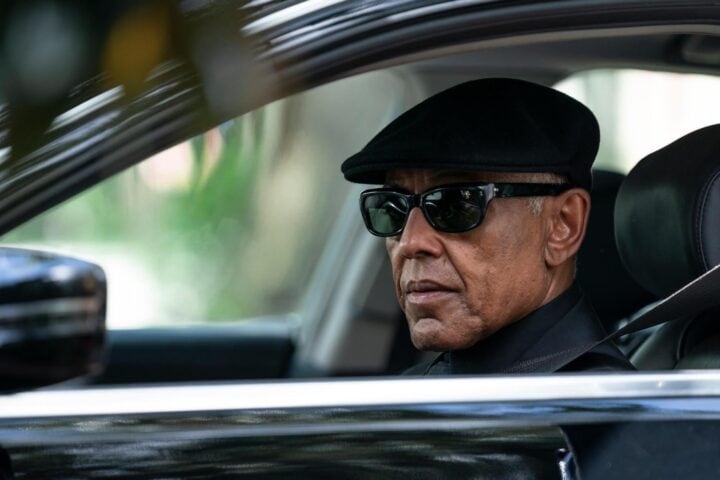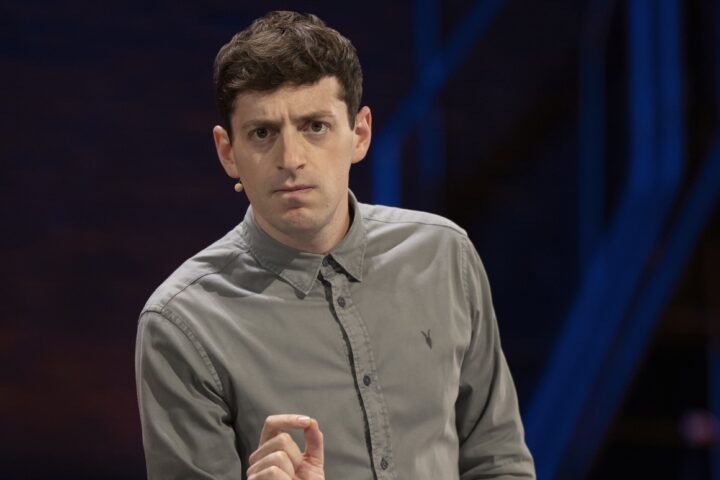Amor Towles’s A Gentleman in Moscow was published in 2016, five years before Russia’s top opposition leader (and Vladimir Putin’s fiercest foe) Alexei Navalny returned to his homeland and was immediately imprisoned. Showtime’s eight-part adaptation of Towles’s novel, about a Navalny-like political prisoner in Russia, serendipitously makes its premiere not long after Navalny died in a Russian prison camp. But the comparisons between reality and fiction largely end there. A Gentleman in Moscow is a glossy, romanticized series that mostly suggests rather than shows the horrors of a totalitarian regime.
The story of the show echoes Navalny’s with its occasionally tin-eared, though still potent, portrayal of an unlikely dissident who refuses to abandon his country but has limited means to fight for it. In 1921, the perky-mustached Count Alexander Rostov (Ewan McGregor) is given a life sentence by a Soviet court for vague counterrevolutionary reasons. But instead of a gulag, he’s imprisoned in Moscow’s glamorous Metropole Hotel.
Though stuck in a chilly garret, Alexander receives fine meals and wine in a grand dining room, cigarettes and newspapers in the grand Art Nouveau lobby, and cocktails at the bar with the A-list foreigners and politicians who come through the Metropole. (Despite its decadence, the hotel is kept open by the Soviets as a kind of glue trap for potential enemies of the state.)
As the years tick past, Alexander grows bored. But he’s more used to idling away the days than most, having sniffily told the revolutionary court “it is not the business of gentlemen to have occupations.” The longueurs of his captivity—to which this almost too-snappily paced series gives short shrift—provide time for brooding over the hazy but guilt-inducing flashbacks of things lost: his family’s luxurious estate, a duel, doting grandmother, tragedy-haunted sister.
Looming threat of execution aside, it’s quite the cozy setup. A Gentleman in Moscow feels like a Masterpiece production, full of handsome people in pretty surroundings doing morally upright things. There’s only limited engagement with the Russian sense of the tragic beyond some bolted-on references to Tolstoy and a long-gestating Chekovian joke around a pair of dueling pistols. The passing of the years is only inconsistently marked, with the Metropole staying unrealistically polished and well-stocked with fine food through the years of Soviet privation.
Throughout the series, the narration by an unidentified young woman generates a light degree of mystery. The story throws Alexander a new challenge or adventure a couple of times per episode. But these dramatic interruptions generally boil down to his need to charm a stranger, whether it’s glam actress Anna Urbanova (Mary Elizabeth Winstead) or dead-eyed secret policeman Osip (Johnny Harris). He succeeds handily in both cases.
At one point, Alexander starts a years-long affair with Anna and turns Osip’s request for high-society tutelage (the better to spy on its guests) into an opposites-attract friendship. Anna and Osip are hard-bitten survivors of the Soviet era’s pitiless political machinations, but they’re believably drawn to the borderline innocent optimism that McGregor imbues in Alexander, possibly seeing him as a respite from the cutthroat reality outside the Metropole.
At first, that persistently winsome attitude makes an awkward fit, given the grim historical premise of A Gentleman in Moscow. Alexander’s bubble is pierced in the first episode when fellow ex-aristocrat Petrov (Paul Ready) is yanked outside by the police and shot dead on the sidewalk. But by the start of the next episode, Alexander seems right as rain. Once he bonds with Nina (Alexa Goodall), a precocious girl with a skeleton key for every door in the hotel, the series threatens to become terminally Tom Hanksian in its pip-pip spirit.
Nevertheless, as the years and decades pass, reality starts creeping in. The scenario’s looming despair and the arbitrariness of Alexander’s gilded imprisonment—he was only spared from the firing squad because a Kremlin politician liked his poetry—keep the whimsy from taking over. In an inspired twist, the more Alexander sees true Soviet believers, like Osip and his old university friend Mishka (Fehinti Balogun), comprehend how the revolution is eating its own, the better he understands the crushing weight of the system that has imprisoned him.
Alexander starts A Gentleman in Moscow as an almost Bertie Wooster figure, gliding serenely through tragedy. Once he begins working at the Metropole Hotel as a waiter, though, that knowledge of wines turning out to have its use. Alexander’s unflappable composure—a refusal to let the bastards grind him down—starts to resemble more that of The Grand Budapest Hotel’s M. Gustave. “If I take it seriously,” Alexander says, “I could fall into a dark despair.” But A Gentleman in Moscow would have been strengthened by a leavening of seriousness, even if its refusal to wallow in despair is part of its not-inconsiderable appeal.
Since 2001, we've brought you uncompromising, candid takes on the world of film, music, television, video games, theater, and more. Independently owned and operated publications like Slant have been hit hard in recent years, but we’re committed to keeping our content free and accessible—meaning no paywalls or fees.
If you like what we do, please consider subscribing to our Patreon or making a donation.




